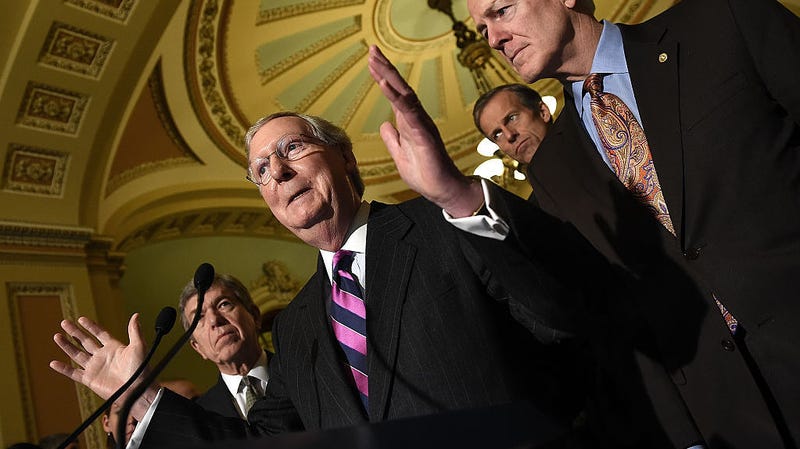 Photo: Getty
Photo: Getty
States have urged the federal government to provide more funding in order to beef up cybersecurity in voting systems, but Republicans in Congress just don’t think it’s the right time to do it. On Wednesday, an amendment to allocate $250 million for election security was rejected by the Senate on partisan lines.
Senator Patrick Leahy introduced today’s amendment for a floor vote after it was rejected by the Senate Appropriations committee. Ahead of the vote, he wrote, “It is time that we heed the clear warning of the intelligence community and take action. It is our obligation to take these attacks on our states seriously, and to step in with the necessary resources to defend our elections.”
Despite the bad optics of publicly opposing stronger election security, the amendment was rejected in a 50-to-47 vote, falling far short of the 60 votes needed to pass. Senator Bob Corker was the only Republican to vote in favor of the spending. Three other Republicans—Richard Burr, Jeff Flake, and John McCain—did not vote for various reasons.
Last week, 21 state attorneys general sent congressional leaders a letter saying additional funding was desperately needed in order to prevent the type of targeted hacking that was seen in the run-up to the 2016 presidential election. The letter followed a vote in the House on July 19 in which Republicans dismissed legislation put forth by Democrats that would renew $380 million earmarked for election security in 2018.
It’s difficult to imagine why Congress would not want to protect elections but to be fair to Republicans, it’s unclear exactly how much money is needed to improve security. We know there’s a problem, the Department of Homeland Security has admitted that at least 21 states’ voting systems were targeted by hackers before the 2016 election in one way or another. The Center for American Progress estimated that a minimum of $1.25 billion would be needed over the next ten years to properly secure the systems in the 55 eligible states and territories.
In March, $380 million was appropriated for states to fix their voting security as part of an omnibus spending bill. Because of that recent funding, Republicans appeared unwilling to approve addition funding today. According to Axios, those in opposition to the amendment complained that states haven’t even collected all of those funds and it’s too early to say if more money is needed.
Senator Leahy says that 90 percent of those funds have been disbursed and now is the time to heed states’ pleas for more. The failed attempt comes just 24 hours after Facebook warned of more election meddling attempts on its platform and a week after Senator Claire McCaskill said her office was targeted by hackers working for Russian intelligence.
It’s true that states appeared to be oddly slow in accepting the last security funds. When Gizmodo checked in March, only 13 states had requested funds, but there was still the possibility that others were just using their own funds in anticipation of getting reimbursed.
The probes by hackers in 2016 were generally believed to be reconnaissance efforts, and more cyber attacks are expected in future elections, including the one coming up in 100 days. That does not mean that any attacks will be successful or even that they are likely to be successful. What might be a bigger problem is the fear that people will begin to lose faith in the integrity of the voting system. Or, a widespread attack occurs that’s ineffective and the public misunderstands it, throwing the whole election into doubt.
When reached by Gizmodo, a spokesperson for Senator Leahy told us he “certainly intends to continue pursuing this issue, and is disappointed Senate republicans blocked his amendment this morning.”
Following a trillion-dollar tax cut for the rich, and the Trump administration mulling over another $100 billion dollar giveaway, it’s a bit baffling to claim setting voters minds at ease would be fiscally irresponsible. But here we are.
[Axios]